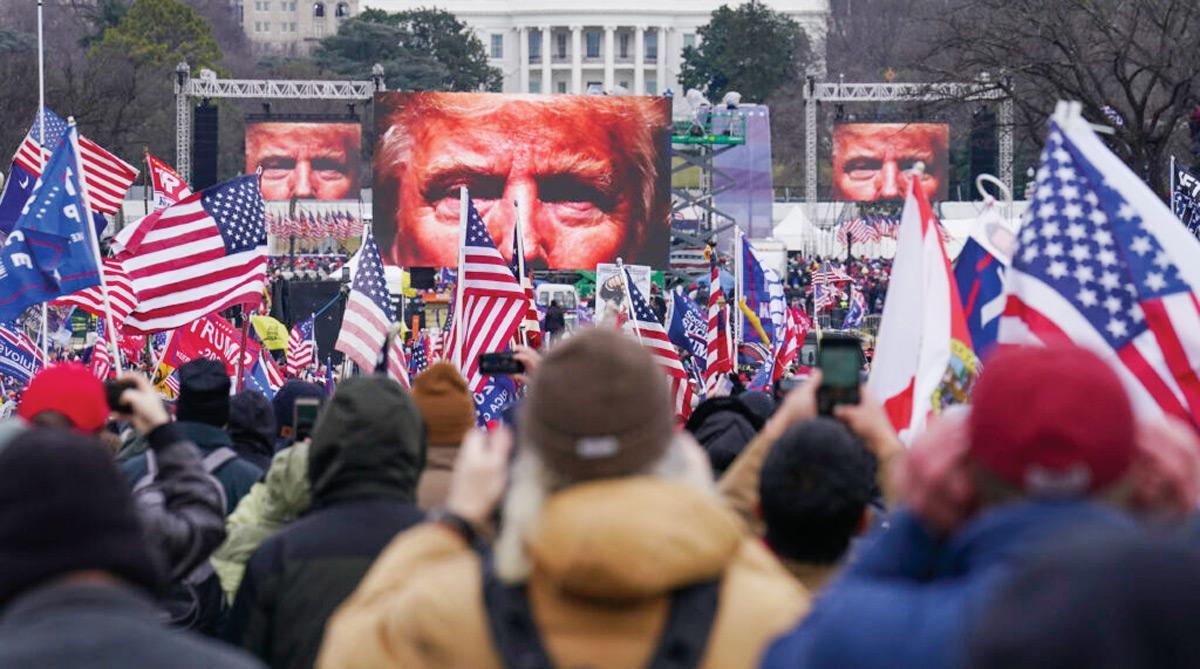Anil Madan
Africa-Press – Mauritius. The Supreme Court of Colorado and the Secretary of State of Maine, have ruled that Donald Trump is not eligible to appear as a candidate for president on the primary or general election ballots in those states by virtue of the prohibition contained in the 14th Amendment to the US Constitution.
The US Supreme Court has agreed to hear an appeal from the Colorado ruling. A Superior Court judge in Maine has stayed the removal of Trump from the ballot pending the US Supreme Court’s decision in the Colorado case. Trump’s right to appear on the presidential ballot has been challenged in other states too.
The rulings have ranged from deferring action, to declaring that this is a political question that cannot (or should not) be answered by the courts but is a matter reserved for Congress, to declaring that election officials do not have to the power to rule on the issue, to saying that Trump cannot be disqualified from a political party’s primary ballot but leaving open the question whether he is eligible to appear on the general election ballot.
A ruling in the Colorado case could potentially resolve all outstanding challenges to Trump’s eligibility to be a presidential candidate. There is a theoretical possibility that the Supreme Court could rule that Trump may appear on the primary and general election ballots but that he would still have to qualify to assume the role of President.
The seemingly simple and straightforward language of the 14th Amendment is anything but. Analysis of the issue requires us to wade through a thicket of objections, questions, protests, arguments, and interpretations.
Let us take a walk through that constitutionally jumbled jungle. Section 3 of the 14th Amendment to the United States Constitution disqualifies insurrectionists and those who give aid or comfort to enemies of the United States, from serving in certain offices. The text of Section 3 is straightforward:
No person shall be a Senator or Representative in Congress, or elector of President and Vice-President, or hold any office, civil or military, under the United States, or under any State, who, having previously taken an oath, as a member of Congress, or as an officer of the United States, or as a member of any State legislature, or as an executive or judicial officer of any State, to support the Constitution of the United States, shall have engaged in insurrection or rebellion against the same, or given aid or comfort to the enemies thereof. But Congress may by a vote of two-thirds of each House, remove such disability.
Political Question Doctrine
It should be obvious that courts are constituted to decide legal matters. The corollary of this is that courts are not empowered to answer political questions.
The general rule is that federal courts should not rule in cases if the issue involved is constitutionally the sole responsibility of either the executive or legislative branch.
The idea is that the courts should not intrude on the province of the other branches of the government or where there is a lack of judicially discoverable and manageable standards for resolving a question presented.
Interestingly, the 14th Amendment itself contains a purely political question. Section 5 states that Congress may by a super majority (a vote of two-thirds of each House) remove the disability of holding office. Notice that the language does not provide any standards for Congress to follow. Thus, this is a purely political decision.
In contrast, deciding whether a person is disqualified under the 14th Amendment from holding office involves resolution of factual questions (such as did the person take an oath to support the Constitution?) and legal questions (such as did the person engage in an insurrection?).
It can be readily seen that the courts have no role in ruling on the wisdom (or lack thereof) of a political decision by Congress under section 5, but they can indeed rule on the factual and legal issues presented under section 3.
Is the President an Officer Under the United States?
The language of section 3 does not explicitly mention the President. If the President is covered, it is because he would have taken an oath “as an officer of the United States.
” The argument is raised that the President is not an officer of the United States.
To me, this is a bogus argument. The Constitution repeatedly refers to the Office of President of the United States. One such reference is found in reference to the Vice President and the Senate:
The Senate shall chuse their other Officers, and also a President pro tempore, in the Absence of the Vice President, or when he shall exercise the Office of President of the United States. Or we can look at the impeachment judgment clause to which I have referred in a previous article:
Judgment in Cases of Impeachment shall not extend further than to removal from Office, and disqualification to hold and enjoy any Office of honor, Trust or Profit under the United States: but the Party convicted shall nevertheless be liable and subject to Indictment, Trial, Judgment and Punishment, according to Law.
Even more explicit is Article II, Section 1 of the Constitution; The executive Power shall be vested in a President of the United States of America. He shall hold his Office during the Term of four Years.
For More News And Analysis About Mauritius Follow Africa-Press







